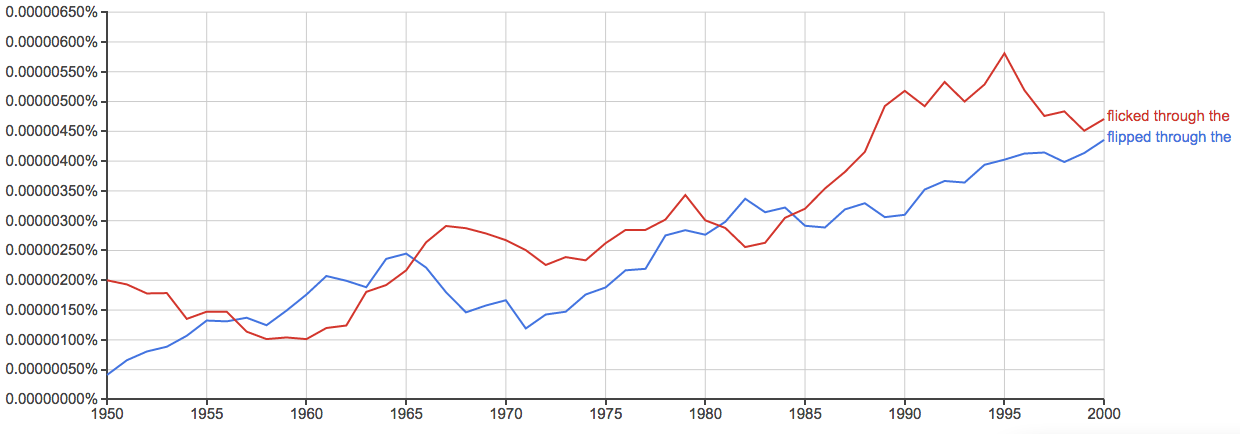I have always heard the expression flip through a book, but recently I came across the similar flick through a book.
The Oxford Dictionary of English gives the meaning of the phrasal verb flip through as look quickly through (a book, magazine, etc) and surprisingly the meaning of flick through is given as the same.
What is the difference between flip through and flick through? Are these two expressions really identical in meaning?


